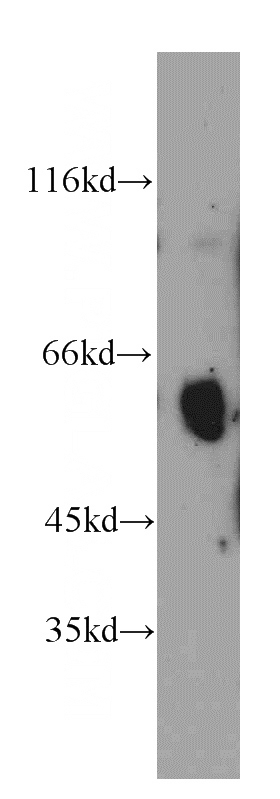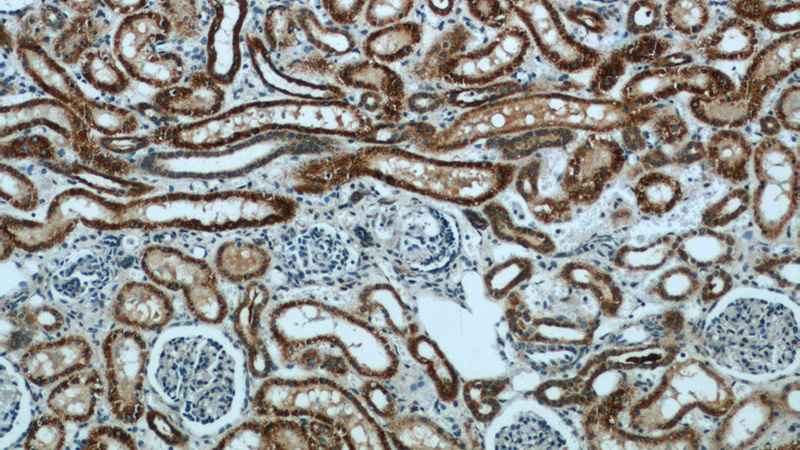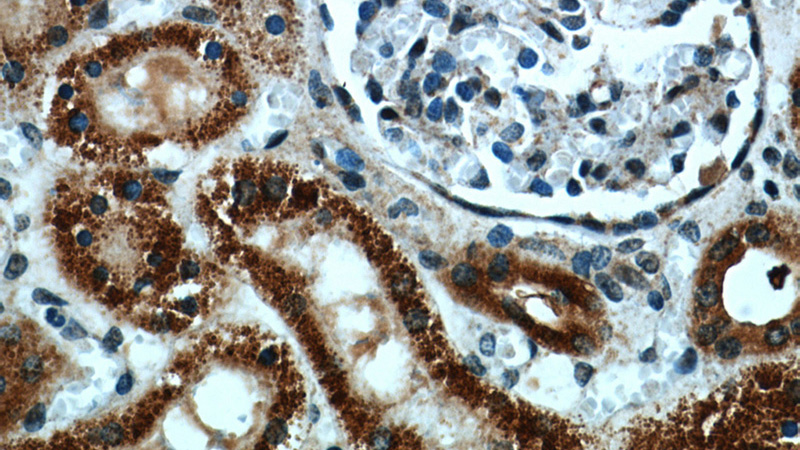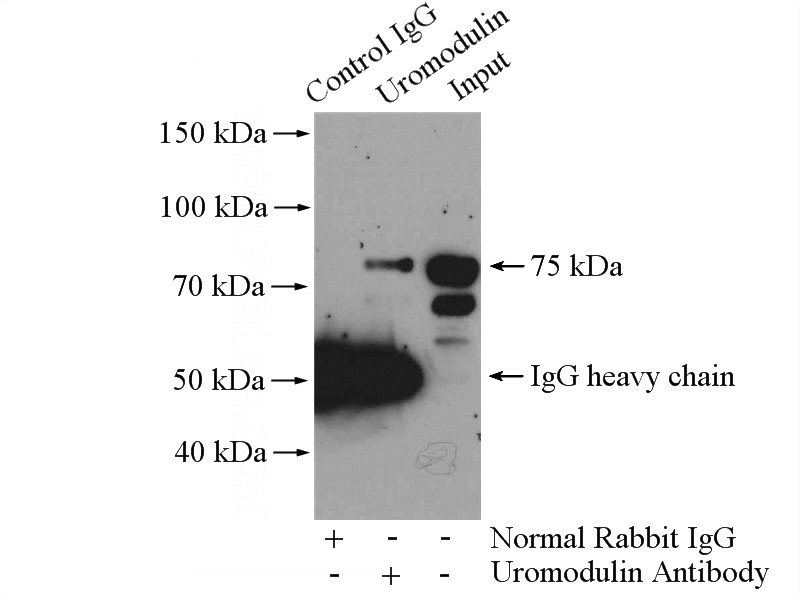-
Product Name
Uromodulin antibody
- Documents
-
Description
Uromodulin Rabbit Polyclonal antibody. Positive IP detected in mouse brain tissue. Positive WB detected in human heart tissue, human brain tissue, mouse brain tissue. Positive IHC detected in human kidney tissue. Observed molecular weight by Western-blot: 55-75 kDa
-
Tested applications
ELISA, WB, IHC, IP
-
Species reactivity
Human,Mouse,Rat; other species not tested.
-
Alternative names
ADMCKD2 antibody; FJHN antibody; HNFJ antibody; MCKD2 antibody; THGP antibody; THP antibody; UMOD antibody; uromodulin antibody
-
Isotype
Rabbit IgG
-
Preparation
This antibody was obtained by immunization of Uromodulin recombinant protein (Accession Number: BC035975). Purification method: Antigen affinity purified.
-
Clonality
Polyclonal
-
Formulation
PBS with 0.02% sodium azide and 50% glycerol pH 7.3.
-
Storage instructions
Store at -20℃. DO NOT ALIQUOT
-
Applications
Recommended Dilution:
WB: 1:200-1:2000
IP: 1:200-1:2000
IHC: 1:20-1:200
-
Validations

human heart tissue were subjected to SDS PAGE followed by western blot with Catalog No:116577(UMOD antibody) at dilution of 1:400

Immunohistochemical of paraffin-embedded human kidney using Catalog No:116577(UMOD antibody) at dilution of 1:50 (under 10x lens)

Immunohistochemical of paraffin-embedded human kidney using Catalog No:116577(UMOD antibody) at dilution of 1:50 (under 40x lens)

IP Result of anti-UMOD (IP:Catalog No:116577, 4ug; Detection:Catalog No:116577 1:500) with mouse brain tissue lysate 4000ug.
-
Background
Uromodulin, also known as THP (Tamm-Horsfall glycoprotein), is the most abundant protein excreted in the urine under physiological conditions. Uromodulin is synthesized by kidney and localizes in cells lining the ascending limb of Henle and distal convoluted tubule. Uromodulin has been linked to water/electrolyte balance and to kidney innate immunity. Also, studies in knockout mice demonstrated that it has a protective role against urinary tract infections and renal stone formation. Mutations in the gene encoding uromodulin lead to rare autosomal dominant diseases, collectively referred to as uromodulin-associated kidney diseases. (PMID: 21654721)
Related Products / Services
Please note: All products are "FOR RESEARCH USE ONLY AND ARE NOT INTENDED FOR DIAGNOSTIC OR THERAPEUTIC USE"
